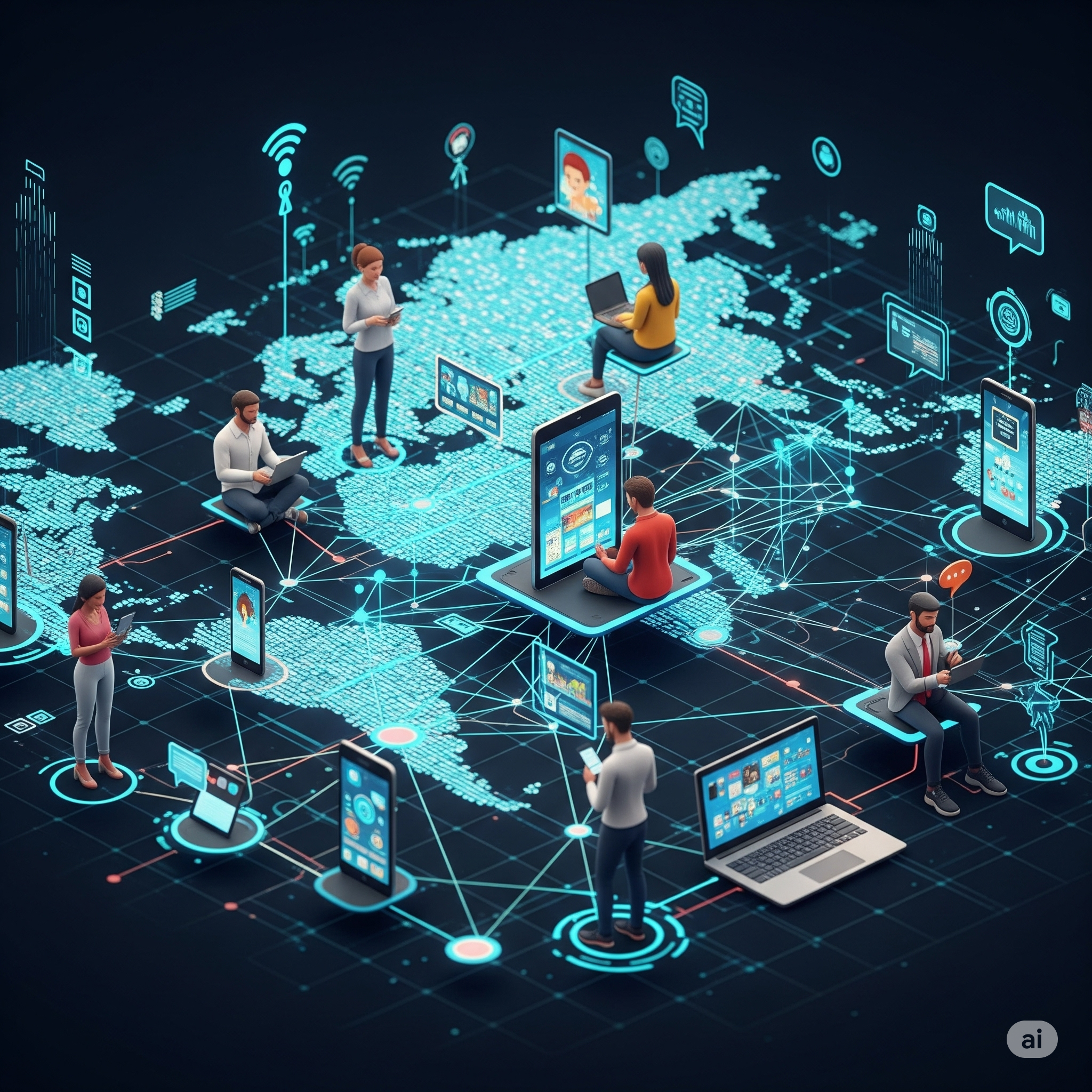Introduction to the pervasive nature of technology and social media in modern life and their transformative impact.
In the 21st century, technology and social media have become inextricably woven into the fabric of our daily lives, transforming how we communicate, work, learn, and interact with the world around us. From the widespread adoption of smartphones to the omnipresence of social networking platforms, these innovations have ushered in an era of unprecedented connectivity and information accessibility. However, this transformative power also brings with it a complex interplay of benefits and challenges that continue to shape individuals and societies globally.
Discussion of how technology has revolutionized communication and information access.
The rapid evolution of technology has fundamentally altered communication. Gone are the days when long-distance interactions were limited to letters or expensive phone calls. Instant messaging, video conferencing, and email have made real-time communication across continents not just possible but commonplace. This has fostered stronger personal connections, facilitated global business collaborations, and enabled immediate responses to crises worldwide. Beyond direct communication, technological advancements have democratized information access. A wealth of knowledge, once confined to libraries and academic institutions, is now readily available at our fingertips through search engines and online databases. This empowers individuals with continuous learning opportunities and fuels innovation by accelerating research and development across various fields.
Examination of social media’s role in social interaction, community building, and its use by businesses and activists.
Social media platforms, in particular, have emerged as powerful tools for social interaction and community building. Platforms like Facebook, Instagram, Twitter (now X), TikTok, and LinkedIn allow individuals to connect with friends and family, discover shared interests, and join communities based on diverse passions. They provide a space for self-expression, enabling users to share their experiences, creativity, and perspectives with a global audience. For businesses and organizations, social media has become an indispensable marketing and public relations tool, offering direct engagement with customers, brand building, and targeted advertising capabilities that were previously unimaginable. Moreover, social media has played a significant role in social and political activism, providing a platform for marginalized voices, organizing protests, and raising awareness about critical issues on a global scale. The Arab Spring uprisings, the #MeToo movement, and various environmental campaigns are prime examples of how social media can mobilize collective action and influence public discourse.
Analysis of the negative impacts, specifically on mental health.
However, the pervasive influence of technology and social media is not without its drawbacks. One of the most pressing concerns is the impact on mental health. The constant pressure to present an idealized self online, the fear of missing out (FOMO), and exposure to cyberbullying can lead to increased anxiety, depression, and low self-esteem, particularly among younger demographics. The addictive nature of these platforms, designed to maximize user engagement, can also result in excessive screen time, disrupted sleep patterns, and a decline in real-world social interactions.
Addressing concerns related to privacy, data security, and the spread of misinformation.
Privacy and data security represent another significant challenge. The vast amounts of personal data collected by technology companies and social media platforms raise serious questions about how this information is stored, used, and protected. Data breaches, identity theft, and the misuse of personal information for targeted advertising or political manipulation are growing concerns that necessitate robust regulatory frameworks and greater transparency from tech giants. The spread of misinformation and disinformation is yet another critical issue. The speed at which content can go viral on social media, often without adequate fact-checking, has made it easier for false narratives, conspiracy theories, and propaganda to proliferate, undermining trust in traditional media and potentially influencing public opinion and democratic processes.
Outlook on future developments, including AI, VR, and AR, and the societal need for adaptation.
Looking ahead, the evolution of technology and social media shows no signs of slowing down. Emerging technologies like Artificial Intelligence (AI), Virtual Reality (VR), and Augmented Reality (AR) are poised to further reshape our digital experiences. AI is already enhancing content recommendation algorithms, powering sophisticated chatbots, and enabling advanced data analysis. VR and AR promise immersive social experiences and new ways of interacting with digital content, potentially blurring the lines between the physical and virtual worlds. As these technologies mature, society will need to continue adapting and developing ethical guidelines, regulatory policies, and educational initiatives to harness their potential benefits while mitigating their risks.
Concluding thoughts on the balanced approach required to navigate the complex landscape of technology and social media for a beneficial future
. In conclusion, technology and social media have profoundly transformed our world, offering unparalleled opportunities for connection, information, and innovation. They have empowered individuals, revolutionized industries, and facilitated social change. Yet, their integration into our lives also demands careful consideration of their impact on mental well-being, privacy, and the integrity of information. Navigating this complex landscape requires a concerted effort from individuals, policymakers, and tech companies to ensure that these powerful tools serve to enrich human lives and foster a more informed, connected, and equitable global society.
